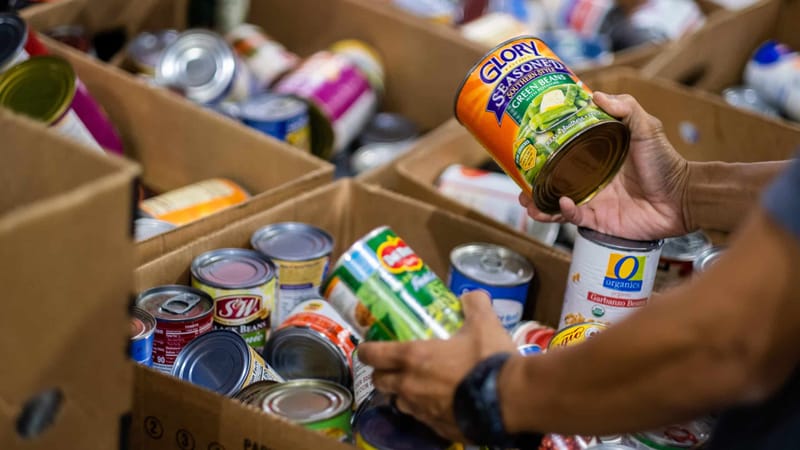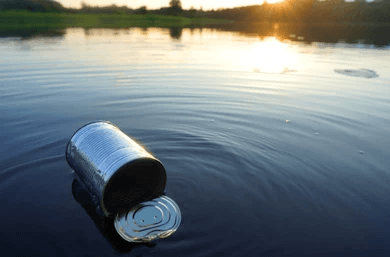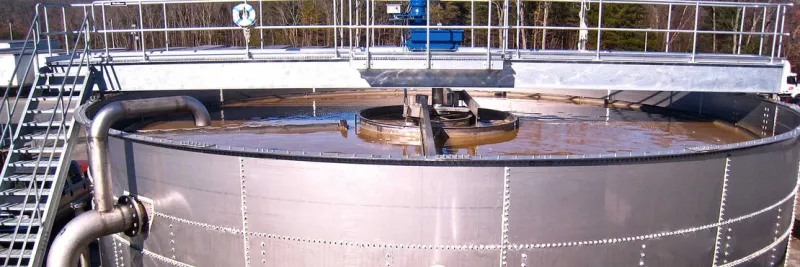Eco-Friendly Practices in Canned Food Production: A Sustainable Approach
Eco-Friendly Practices in Canned Food Production: A Focus on Wastewater Treatment
The food industry has long faced scrutiny for its environmental impact, and canned food production is no exception. However, significant strides have been made to reduce the ecological footprint of the industry, particularly in terms of wastewater treatment and management. In canned food production, where water is a critical resource used in various stages—such as washing, processing, and cooling—managing and treating wastewater is essential to sustainability.
In this blog, we’ll explore eco-friendly practices in wastewater treatment for canned food production, highlighting how manufacturers are improving water efficiency, reducing pollution, and adopting sustainable methods to handle this valuable resource.

The Role of Water in Canned Food Production
Water is an indispensable resource in canned food production. It is used for:
- Cleaning and washing raw materials like fruits, vegetables, and seafood.
- Cooling during the canning process.
- As an ingredient in certain food products (soups, sauces, etc.).
While water is critical for these processes, it generates significant amounts of wastewater containing organic matter, chemicals, and by-products. Improper treatment of this wastewater can lead to severe environmental degradation, including contamination of local water bodies and harm to aquatic life.
Key Challenges in Wastewater Management
Before diving into the sustainable solutions, it's important to understand the challenges associated with wastewater in canned food production:
High Organic Load: Wastewater from the food industry often contains high levels of organic materials, such as vegetable peels, juices, and oils. If released untreated, these substances can deplete oxygen levels in water bodies, harming aquatic ecosystems.
Chemical Contaminants: Chemical additives, cleaning agents, and preservatives used in the production process can end up in wastewater, posing a challenge for treatment.
High Water Usage: The canned food industry is water-intensive. Efficient use and recycling of water are essential to reduce strain on freshwater resources.
Varying Composition: Depending on the type of food being canned (e.g., fruits, vegetables, seafood), the wastewater composition can vary greatly, making a one-size-fits-all treatment solution ineffective.
Given these challenges, canned food producers are turning to innovative and eco-friendly wastewater treatment solutions.

Sustainable Wastewater Treatment Solutions
1. Closed-Loop Water Recycling Systems
One of the most effective ways to reduce water usage and minimize wastewater is by implementing closed-loop systems. These systems recycle and reuse water in various stages of the production process.
How it Works: Water used in processes like cooling and washing is collected, filtered, and treated to remove contaminants before being reused in the same or different parts of the production cycle.
Environmental Impact: By reducing the need for fresh water, closed-loop systems decrease the overall water footprint of the plant and minimize the volume of wastewater that needs to be treated or discharged.
2. Biological Treatment Methods
To manage the high organic load in wastewater, many manufacturers are adopting biological treatment processes.
Anaerobic Digestion: In this process, microorganisms break down organic matter in the absence of oxygen, producing biogas (a renewable energy source) as a by-product. The remaining sludge can be used as a nutrient-rich fertilizer for agricultural purposes.
Aerobic Treatment: This method uses oxygen and bacteria to break down organic compounds in the wastewater. Aerobic treatment is highly effective for reducing Biological Oxygen Demand (BOD) and Chemical Oxygen Demand (COD), two critical indicators of water quality.
Both anaerobic and aerobic treatments are eco-friendly methods that turn waste into valuable resources while ensuring that harmful substances are removed from the water before discharge.
3. Membrane Filtration Technologies
Advanced filtration technologies like Reverse Osmosis (RO) and Ultrafiltration (UF) are increasingly being employed in canned food production to treat wastewater.contaminated water
Reverse Osmosis: RO systems push wastewater through a semi-permeable membrane, filtering out contaminants like salts, chemicals, and organic matter. The result is purified water that can be reused in the production process.
Ultrafiltration: UF works similarly but targets larger particles like suspended solids and bacteria, ensuring that only clean water is passed through. This treated water can then be reused for non-potable applications, such as cleaning or cooling.
Both filtration methods drastically reduce the pollutants in wastewater and contribute to overall water conservation efforts within the facility.
4. Natural Treatment Systems (Constructed Wetlands)
Some manufacturers are opting for more nature-based solutions, like constructed wetlands, to treat wastewater.
How it Works: In these systems, plants and soil naturally filter and purify the water. As wastewater flows through the wetland, plant roots and microorganisms break down pollutants, improving water quality over time.
Environmental Benefits: Constructed wetlands not only treat wastewater but also create biodiversity-rich ecosystems, supporting plant and animal life. Additionally, they provide a low-energy, sustainable alternative to traditional treatment methods.
5. Phytoremediation
Phytoremediation is an eco-friendly technique that uses plants to clean up contaminated water. In canned food production, this method can be used to treat wastewater in a cost-effective and natural manner.
- How it Works: Certain plants, like water hyacinths and willows, can absorb heavy metals, toxins, and other contaminants from wastewater. These plants can either detoxify pollutants or sequester them, preventing their release into the environment.
Phytoremediation offers a low-maintenance and visually appealing way to manage wastewater, especially in regions where large treatment facilities may not be feasible.

Reducing Water Usage and Enhancing Efficiency
Aside from treating wastewater, it’s equally important to minimize water consumption in the first place. Manufacturers are adopting various strategies to optimize water use, including:
1. Water Audits
Conducting regular water audits allows companies to track and monitor water usage across different stages of production. By identifying inefficiencies, manufacturers can implement targeted solutions to reduce water waste.
2. Efficient Equipment and Processes
Installing water-efficient equipment, such as low-flow nozzles for cleaning and automated water-saving devices, ensures that water is only used where and when necessary. Moreover, re-engineering production processes to require less water can yield significant savings over time.
3. Employee Training and Awareness Programs
Empowering employees to take action in conserving water is a simple yet effective method of reducing overall consumption. Training staff on water-efficient practices and raising awareness about sustainability can lead to better operational habits, further reducing water waste.
Future Trends: Towards Zero-Liquid Discharge
As sustainability becomes a top priority, the concept of Zero-Liquid Discharge (ZLD) is gaining traction in the canned food production industry.
- What is ZLD?: ZLD systems aim to eliminate all liquid waste from the production process. Through a combination of advanced filtration, evaporation, and condensation, ZLD systems recover nearly all water used in production, leaving behind solid waste that can be repurposed or disposed of in an environmentally friendly manner.
Though expensive to implement, ZLD represents the future of wastewater treatment, as it allows manufacturers to recycle nearly 100% of their water and drastically reduce environmental contamination.
Conclusion
Eco-friendly practices in canned food production are rapidly evolving, particularly in the realm of wastewater treatment. From biological methods like anaerobic digestion to advanced technologies like membrane filtration and natural solutions like constructed wetlands, manufacturers are finding innovative ways to reduce their water footprint and improve sustainability.
As consumers become more eco-conscious, it is clear that adopting sustainable wastewater treatment methods will not only protect our water resources but also enhance the long-term viability of the canned food industry. Through a combination of water conservation, recycling, and innovative treatment solutions, the canned food sector can play a significant role in protecting the planet while continuing to meet consumer demand.